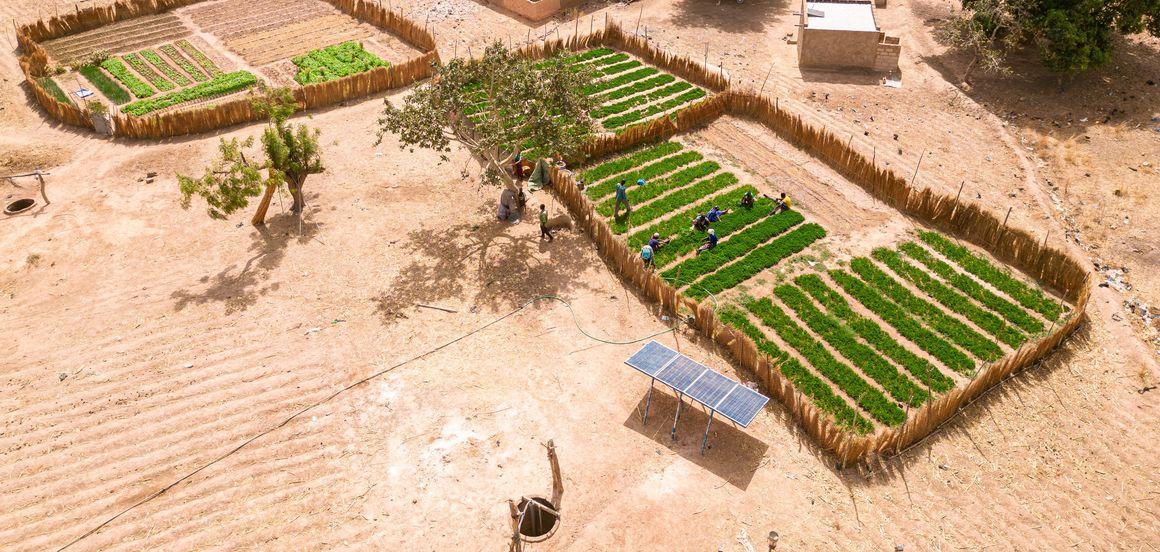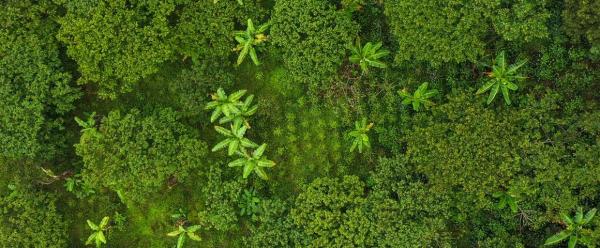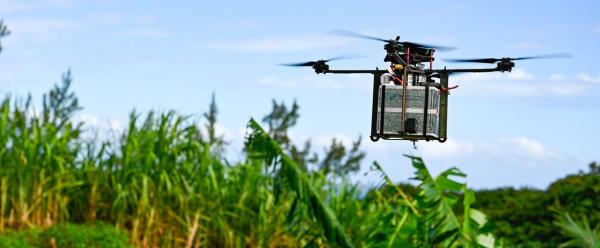Results & impact 10 October 2025
- Home
- Press area
- Press releases
- Transforming food systems
Research is working to transform food systems

In Burkina Faso, thet IRRINN project has enabled small-scale market gardeners to switch from pumping water by hand to automatic pumping using solar-powered pumps © E. Rouamba, CIRAD
For Aurélie Toillier, innovation management researcher with CIRAD, "the challenge for agricultural research these days is not so much generating new knowledge as succeeding in using existing knowledge to initiate and support transitions to more sustainable food systems".
For the past five years, hundreds of scientists have been working on transformative innovation processes, with the agricultural sector in more than 65 countries across three continents. The aim is to make farming and food systems more sustainable and resilient to climate change. Some 80 research and innovation (R&I) projects are under way within the framework of the DeSIRA initiative, funded by the European Union (DG INTPA).
The DeSIRA-LIFT service facility was set up to support the dynamic. "This service facility is intended to build some types of capacity among DeSIRA project teams that are vital for coping with the complex, uncertain situations typical of innovation projects, for instance their capacity to manage open, responsible innovation processes; to adapt and respond to innovation requirements in a given context; to influence the environment of a project and strengthen the national agricultural innovation system within which the project is being rolled out; to implement monitoring-evaluation-learning activities to combine learning and accountability in real time; and to collaborate with a range of partners", says Aurélie Toillier, who is leader of DeSIRA-LIFT Service Area 1.
DeSIRA-LIFT has produced a book to highlight the range and originality of the participatory research and innovation co-design approaches within DeSIRA, based on 12 stories of change written by project teams. "The book aims to show how research teams have devised and overseen innovation processes ranging from generating knowledge to creating and operating multi-stakeholder mechanisms and organizing policy dialogue, among other things. The book centres on this array of participatory action research methods for innovation and transition."
In particular, the book illustrates the shift in researchers' traditional role as suppliers of new technologies, towards a much more proactive role in designing, supporting and managing innovation processes and others aimed at transforming food systems. It sets out their essential position within agricultural innovation systems and shines a spotlight on the multitude of participatory operations rolled out in order to make innovation a lever for sustainable transitions, notably by centring it on end users and promoting co-innovation guided by them.
For instance, one of the stories of change shows how the FAIR Sahel project in Senegal involves farmers in trials while researchers act as observers and listeners, which enables mutual learning.
In Burkina Faso, another experiment as part of the IRRINN project has shown how small-scale market gardeners have been able to switch from pumping water by hand to automatic pumping using small solar-powered pumps. By co-designing integrated solutions within multi-stakeholder platforms, the project has been able to launch a simple, innovative funding mechanism that directly links producers and sellers for a two-year period prior to final acquisition of the pumps.
Another story tells how in Brazil, the Sustenta e Inova project team also involved local people and communities in co-building methods for sustainably managing native acai trees, including traditional and scientific know-how in training courses led by the communities themselves. The approach, built with those communities, has helped to boost acai production, extend off-season harvesting and improve worker safety.
Collecting stories has two main aims: to improve people's understanding of the impact of research on agricultural transitions and to learn from projects.
"Stories of change are a powerful tool for illustrating how research embarks upon multi-stakeholder processes to support the knowledge generation, collaboration, reflection and capacity building required to design innovations for greater sustainability. Those processes may be long and complex, and unique to a given country or innovation sector. They are not replicable as such, but the range of experiences described serves to pinpoint shared criteria for success, such as the importance of forging partnerships with civil society organizations and of promoting local know-how, co-creation approaches and participatory methods, listening and mutual learning."
The stories show not only the changes that have occurred but the reasons why they occurred and the processes that led to those changes on the different levels on which the project was active. They may focus on positive results, but can also look into the reasons why the desired results were not achieved, and draw lessons from those reasons.
A second compilation, due out in early 2025, will illustrate the changes within agrifood systems enabled by innovations developed with research, and the conditions established by projects to facilitate successful scaling up.
Reference
Toillier A., Guillonnet R., Dolinska A., Henriquez P., Perez M., Lima de Faria M., eds. 2024. Activating agricultural transitions to sustainability through participatory research and co-innovation. Stories of change across Africa, Asia and Latin America from de the DeSIRA initiative. CIRAD, France, 76 p. ISBN: 978-2-87614-849-9
The DeSIRA programme comprises 80 research and innovation (R&I) projects in more than 65 countries across three continents between 2019 and 2026, supported by a 340 million-euro contribution from the European Union. DeSIRA uses R&I to solve complex problems linked to sustainable transitions durables, to achieve sustainable development goals in low- and middle-income countries.
DeSIRA also aims to build research capacity among organizations, which are key agricultural innovation players, to improve governance of the research-innovation-transition continuum on a local, national, regional, continental and global level.



























